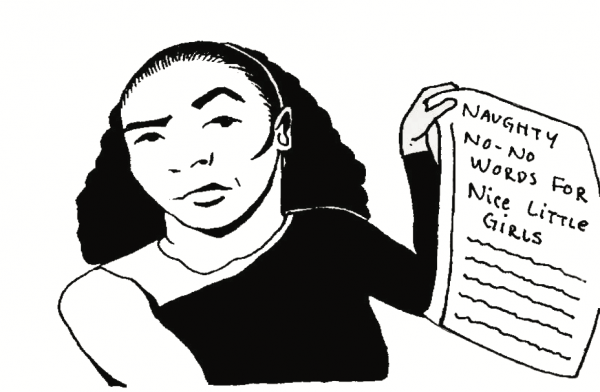US Open Exposes Greater Faults
September 26, 2018
“Son of a b—.”
“You’re an abortion.”
“Don’t f— talk to me.”
Even a ball kicked at the umpire.
These are just a few examples of the things male tennis stars have said and done when they lost their cool during matches. None of them received any sort of penalty. Yet when Serena Williams used rough language during a match, her opponent was awarded a game, shifting the standing from 4-3 Naomi Osaka to 5-3 Osaka. Afterwards, Williams was fined $17,000.
No one knows if Williams would have won the Women’s Grand Slam final without the penalty; commentators agree that Osaka was playing the best match of her life. What we do know is that both Williams and Osaka had their day ruined because of umpire Carlos Ramos’ behavior, who grossly penalized Williams for “verbal abuse.”
Williams is no stranger to verbal abuse, and this is not the first time that the sport she revolutionized has rebuked her. She has faced everything from racist taunts at the 2001 Indian Wells Masters, to the bodysuit she wore to prevent blood clots being banned at the 2019 French Open because the French Tennis Federation President Bernard Giudicelli believed it was too close-fitting.
What should have been a day of joy for Osaka has now been forever marred because a man decided that the emotional expression of a woman was so unseemly that she deserved to be punished for her infraction.
Sports players in general make mistakes and lose their temper. It happens. What shouldn’t happen is a childish, unprofessional and frankly ludicrous call during one of the most important games of the year. Yet the tragedy of this year’s Women’s Grand Slam final feeds into a larger conversation: How women are punished for daring to express anger while men are allowed to express themselves as fiercely as they want, and are often admired for it.
As former World No. 1 professional tennis player Billie Jean King put it, “When a woman is emotional, she’s ‘hysterical’ and she’s penalized for it. When a man does the same, he’s ‘outspoken’ and there are no repercussions.”
Society constantly policies our facial expressions and tells us to smile. Tells us to calm down and let it go. To be peaceful and harmonious, rather than confident or “bossy.” No matter how you look at it, society tells a woman if she isn’t showing the world that she’s happy, then she needs to pull herself together and smile like she is.
Imagine telling Serena Williams, the most decorated tennis athlete on the planet, that she needs to smile more. That she needs to calm down. That she’s coming off a little too aggressive.
Meanwhile, male anger and aggression is validated, glorified and even considered normal. Men can frown, wave their hands and say what they mean without anyone batting an eye. Smashed rackets are simply a funny afterthought.
This leads to a double standard: men are conditioned to be unable to properly channel their strongest emotions through anything but outward displays of rage while women are punished for exhibiting anything other than happiness or sadness. This schism hurts both and uplifts neither.
Calling tennis umpire Ramos a “thief” and speaking to him as rudely as she did was uncalled for, even if it was in the heat of the moment. But even less acceptable was Ramos’ insertion of himself into the game because his ego was hurt by a woman speaking to him like he was just an umpire.
Tennis may only be a game, but what we can and should take from this distasteful and frankly ridiculous incident is twofold. Firstly, we should all think carefully about our gender biases before making serious calls, both on and off the court. Secondly, we must create room for women to feel more comfortable expressing anger and other “taboo” emotions. Osaka and Williams will likely carry the scars of this incident for the rest of their careers, but as a society we have an obligation to learn from it and begin the process of healing.











